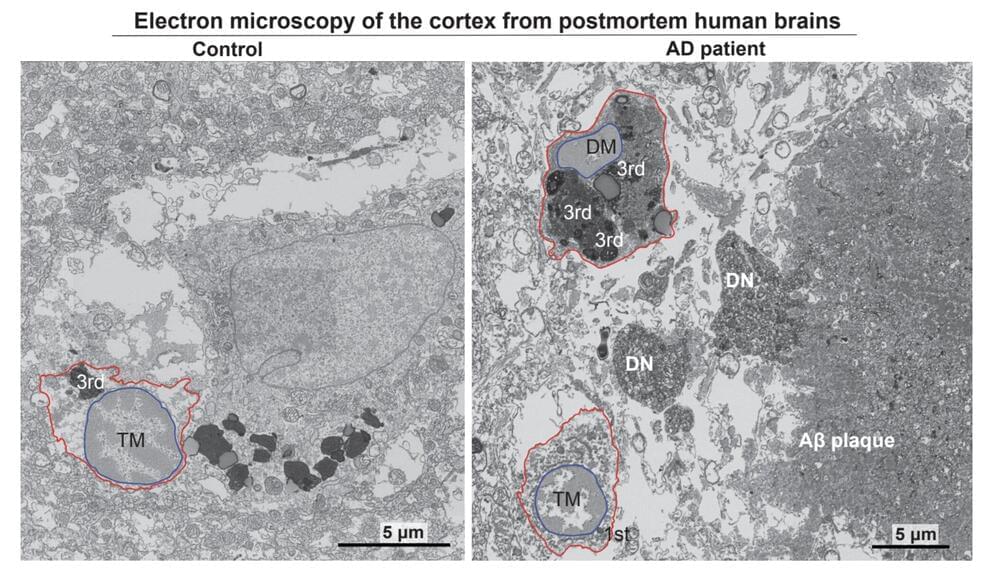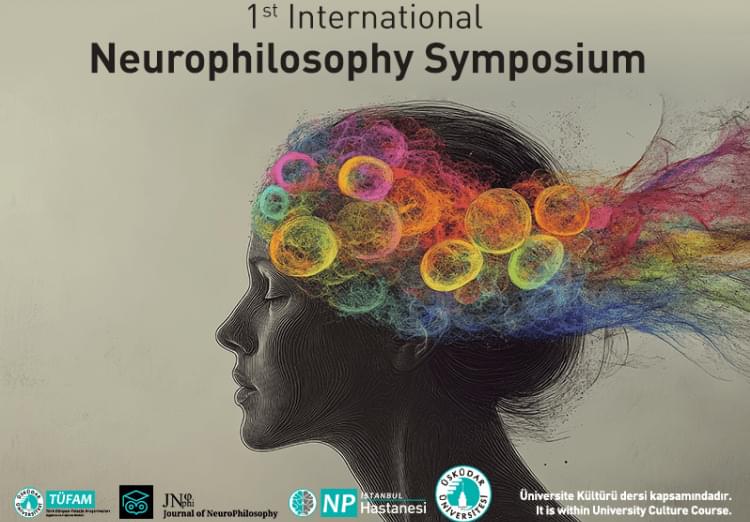Discover the breakthroughs — and the dangers — of trusting machines with your health. The truth might shock you.



Researchers with the Advanced Science Research Center at the CUNY Graduate Center (CUNY ASRC) have unveiled a critical mechanism that links cellular stress in the brain to the progression of Alzheimer’s disease (AD).
The study, published in the journal Neuron, highlights microglia, the brain’s primary immune cells, as central players in both the protective and harmful responses associated with the disease.
Microglia, often dubbed the brain’s first responders, are now recognized as a significant causal cell type in Alzheimer’s pathology. However, these cells play a double-edged role: some protect brain health, while others worsen neurodegeneration.

A study published in Cell Reports Medicine reveals that bowel movement frequency significantly influences physiology and long-term health, with the best outcomes linked with passing stools once or twice a day.
Previous research has suggested associations between constipation and diarrhea with higher risks of infections and neurodegenerative conditions, respectively.
But since these findings were observed in sick patients, it remained unclear whether irregular bathroom visits were the cause or result of their conditions.

DOI: Abstract We are living in a historical period in respect to the deterioration in public health, as we experience the rise of the catastrophic obesity epidemic and mental health crisis in recent decades, despite the great efforts from the scientific and medical community to seek health solutions and to try to find cures to the enormous human suffering and economic costs resulting by this collapse in public health. This trend has reached such a critical level that it jeopardizes society when over 40% of the population is obese in the United States, suffering grave medical health conditions, even as the expenditure on public health is rising exponentially to over 20% of gross domestic product. This should point to a monumental failure in our fundamental understanding of basic human biology and health. This article suggests that our current Western reductionist scientific paradigm in both biology and medicine has proved impotent and failed us completely. Therefore, the current cultural health crises require a more holistic approach to human biology and health in terms of chronobiological trends. The emerging neuroscience of brain energy metabolism will be considered as a holistic model for understanding how solar cycles affect our civilization and drive our sex and growth hormones and neurotransmitters that shape both our physical and mental health.

In recent years, roboticists have developed a wide range of systems that could eventually be introduced in health care and assisted living facilities. These include both medical robots and robots designed to provide companionship or assistance to human users.
Researchers at Shanghai Jiao Tong University and the University of Shanghai for Science and Technology recently developed a robotic system that could give human users a massage that employs traditional Chinese medicine (TCM) techniques. This new robot, introduced in a paper on the arXiv preprint server, could eventually be deployed in health care, wellness and rehabilitation facilities as additional therapeutic tools for patients who are experiencing different types of pain or discomfort.
“We adopt an adaptive admittance control algorithm to optimize force and position control, ensuring safety and comfort,” wrote Yuan Xu, Kui Huang, Weichao Guo and Leyi Du in their paper. “The paper analyzes key TCM techniques from kinematic and dynamic perspectives and designs robotic systems to reproduce these massage techniques.”

Salt, or more precisely the sodium it contains, is very much a “Goldilocks” nutrient. Low sodium levels cause a drop in blood volume, which can have serious, sometimes deadly, health consequences. Conversely, too much salt can lead to high blood pressure and cardiovascular disease.
In modern America, where most people consume a high-salt diet, almost no one is in danger of having too little salt. However, given the critical importance of sodium for body and brain functions, evolution has developed a powerful drive to consume salt in situations where there is a deficiency.
Understanding the brain circuitry that controls salt appetite has proved elusive, but now a new study by University of Iowa researchers has identified the first and, thus far, only neurons necessary for salt appetite.

As the global population ages, more of us face frightening cognitive decline, personally or in our loved ones. There are over 10 million new cases of dementia globally each year.
But a study published this year suggests up to 13 percent of people diagnosed with dementia in the US may have a misdiagnosis and are instead left struggling with a condition that can be treated.
“Health care providers [must be] made aware of this potential overlap between dementia and hepatic encephalopathy, which is treatable,” said Virginia Commonwealth University hepatologist Jasmohan Bajaj in July.
Considering what’s known about their brain structures, sensory systems and learning capacity, it appears that cephalopods as a group may be similar in intelligence to vertebrates as a group. Since many societies have animal welfare standards for mice, rats, chickens and other vertebrates, logic would suggest that there’s an equal case for regulations enforcing humane treatment of cephalopods.
Such rules generally specify that when a species is held in captivity, its housing conditions should support the animal’s welfare and natural behavior. This view has led some U.S. states to outlaw confined cages for egg-laying hens and crates too narrow for pregnant sows to turn around.
Animal welfare regulations say little about invertebrates, but guidelines for the care and use of captive cephalopods have started to appear over the past decade. In 2010, the European Union required considering ethical issues when using cephalopods for research. And in 2015, AAALAC International, an international accreditation organization for ethical animal research, and the Federation of European Laboratory Animal Science Associations promoted guidelines for the care and use of cephalopods in research. The U.S. National Institutes of Health is currently considering similar guidelines.

There are various studies that have explored the role of the body’s circadian rhythm in regulating immune activity. Disruptions in the circadian rhythms exacerbate inflammation. Researchers from the Royal College of Surgeons in Ireland (RCSI) University of Medicine and Health Sciences have previously studied how the immune cells called macrophages are affected without an internal body clock. Now, new research by RCSI describes how macrophages work differently at various times of day and could pave the way for time-targeted treatments for inflammatory diseases. The research also illuminates a key role for mitochondria in driving daily changes in immune activity.
The findings are published in The FASEB Journal in an article titled, “Time-of-day control of mitochondria regulates NLRP3 inflammasome activation in macrophages.”
Macrophages release interleukin-1 (IL-1) cytokines in response to inflammatory stimuli, and the NLRP3 inflammasome mediates IL-1-family cytokine release via pyroptosis. Mitochondria play a multifaceted role regulating NLRP3 inflammasome activity. However, whether the macrophage clock regulates the NLRP3 inflammasome via mitochondrial control remains unclear.

Artificial intelligence (AI) is becoming increasingly useful for the prediction of emergency events such as heart attacks, natural disasters, and pipeline failures. This requires state-of-the-art technologies that can rapidly process data. In this regard, reservoir computing, specially designed for time-series data processing with low power consumption, is a promising option.
It can be implemented in various frameworks, among which physical reservoir computing (PRC) is the most popular. PRC with optoelectronic artificial synapses that mimic human synaptic elements are expected to have unparalleled recognition and real-time processing capabilities akin to the human visual system.
However, PRC based on existing self-powered optoelectronic synaptic devices cannot handle time-series data across multiple timescales, present in signals for monitoring infrastructure, natural environment, and health conditions.